LEARN MORE
The Best Cows-Milk Alternatives
There are plenty of non-dairy options if you don’t want to drink milk from a cow. This article provides the 7 best cows-milk alternatives.
Many people consider cow’s milk to be a need in their diets. It may be drunk, poured over cereal, or mixed into various drinks. Many individuals can’t or won’t drink milk because of dietary limitations, personal choice, sensitivities, or intolerances.
Almond Milk
Whole almonds or almond butter are combined with water to make almond milk. The texture is light, and the flavour is somewhat sweet and nutty.
It has less than a quarter of the calories and less than half the fat of cow’s milk. It also has a reduced protein and carbohydrate content. It’s one of the lowest-calorie non-dairy milk on the market, making it an excellent choice for anybody looking to reduce their calorie intake.
Almond milk is a natural source of vitamin E, an antioxidant that helps the body fight disease-causing free radicals. Almonds also contain phytic acid, which binds to iron, zinc, and calcium, preventing them from being absorbed by the body.
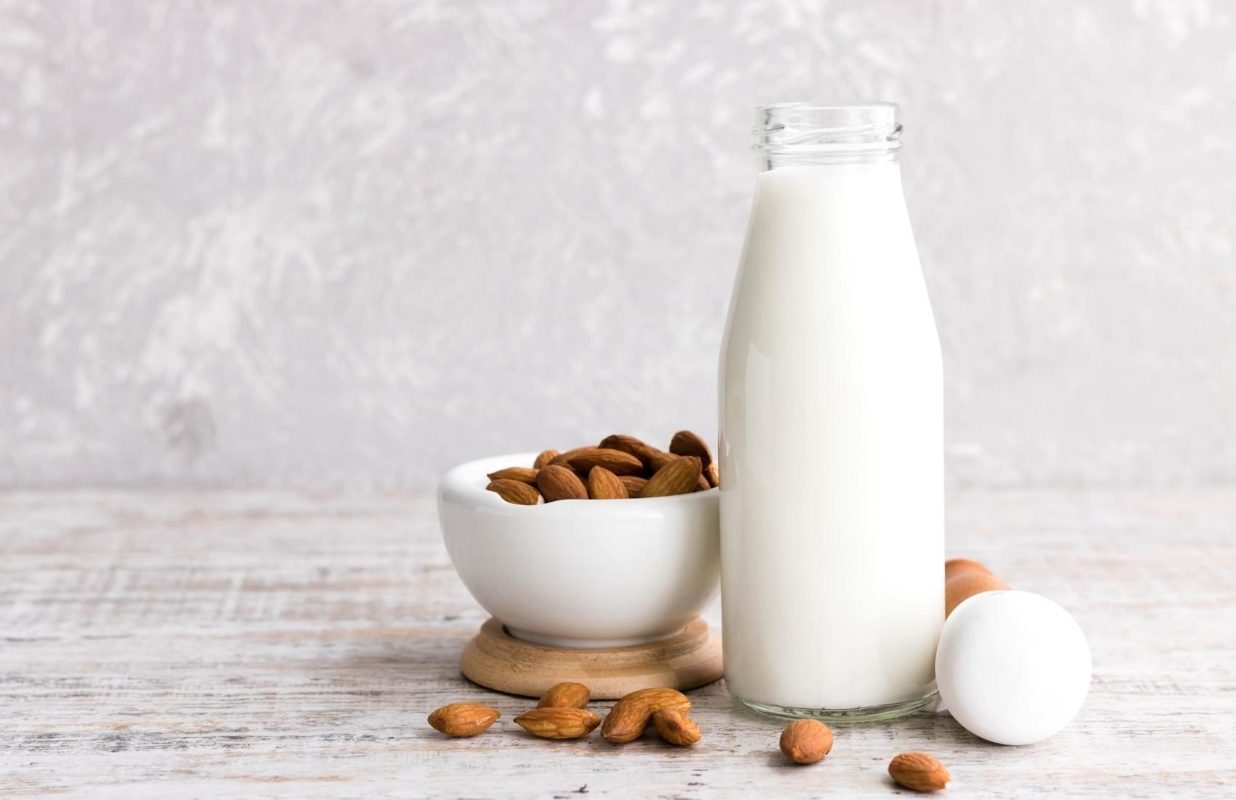
Soy Milk
Soy milk is produced from soybeans or soy protein extract, and thickeners and plant oils are frequently added to improve texture and flavour. Its taste is usually moderate and creamy.
This is a close non-dairy alternative for cow’s milk in terms of nutrients. It has around half the calories, fats, and carbs but has a comparable quantity of protein.
It’s also one of the few plant-based sources that contain all nine necessary amino acids. These are amino acids that the body cannot produce and must be obtained from nutrition.
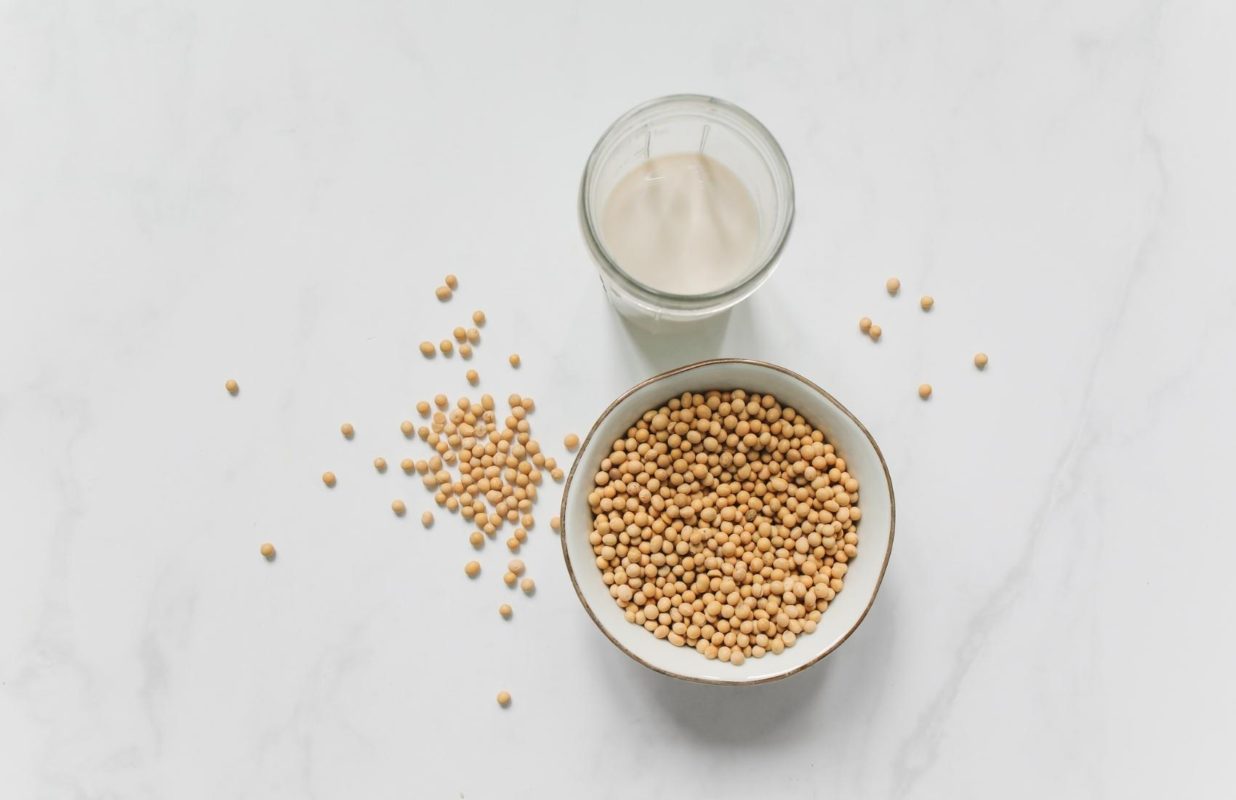
The Best Cows-Milk Alternatives – Rice Milk
Rice milk is prepared by combining water and ground white or brown rice, while it incorporates thickeners to enhance texture and flavour. It has a smooth watery consistency with a mild, naturally sweet taste.
Among the non-dairy kinds of milk, rice milk is the least allergic. This makes it a safe alternative for anyone with dairy, gluten, soy, or nut allergies or intolerances.
This milk has a similar calorie count as cow’s milk but nearly double the number of carbs. Rice milk contains the most carbohydrates of any non-dairy milk alternative. It has around three times the number of other non-dairy milk and has lower protein and fat content.
In a previous blog, we discussed Vegan Vitamin D Food Sources for Vegans, including rice and almond milk. Fortified rice milk is an excellent source of Vitamin D3 – Read more here: vegan-vitamin-d-food-sources-for-vegans

The Best Cows-Milk Alternatives – Oat Milk
Oat milk is made from a blend of oats and water in its most basic form. To get a good flavour and texture, manufacturers frequently add additional oils, salt and gums. Oat milk has a mild taste and is naturally sweet.
Oat milk has a comparable number of calories as cow’s milk but includes around half as much protein and fat and up to twice as many carbs.
It is is high in beta-glucan and total fibre. Beta-glucan is a soluble fibre that passes through the stomach and forms a thick gel.
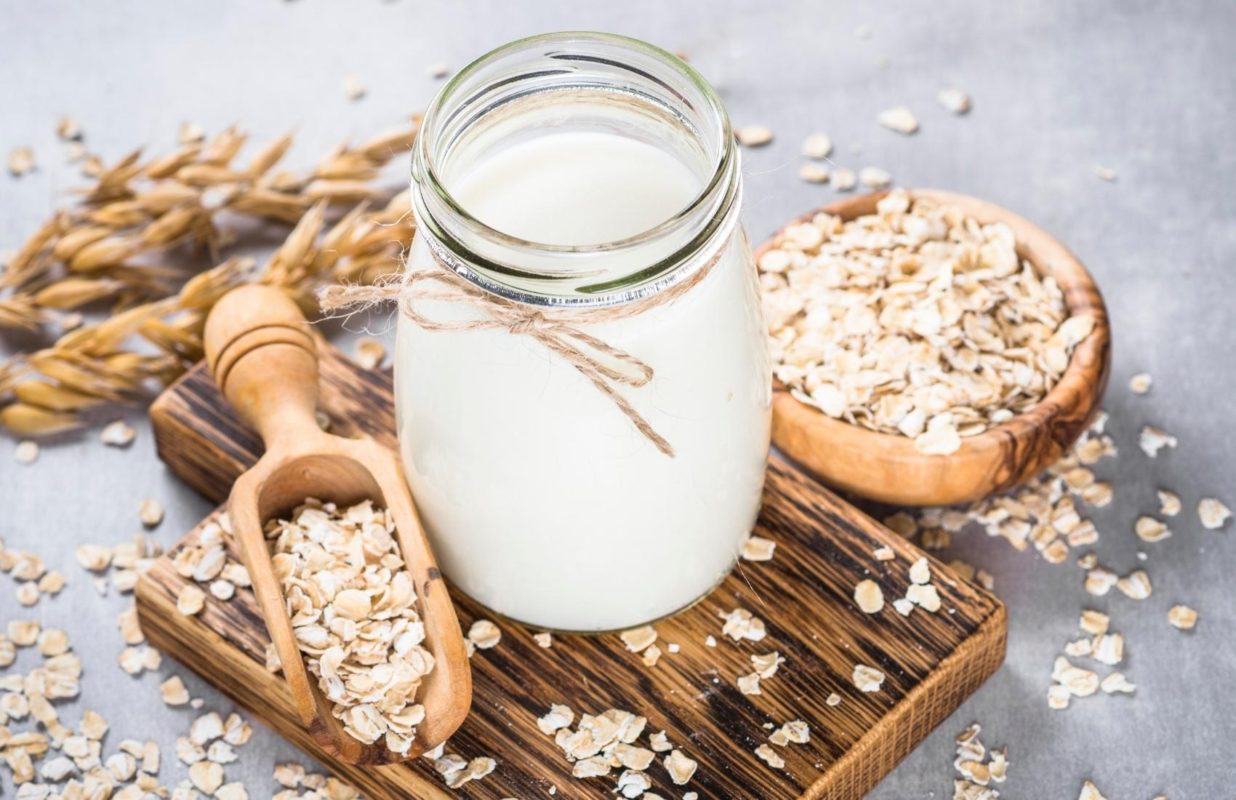
Coconut Milk
Water and the white core of brown coconuts are used to make coconut milk. Coconut milk has a smooth texture and a little coconut taste.
Coconut milk has a third of the calories, half the fat, and far less protein and carbs than cow’s milk.
Among non-dairy milk, coconut milk has the lowest protein and carbohydrate levels. It is not ideal for individuals who demand a lot of protein, but it is suitable for cutting down on carbs.
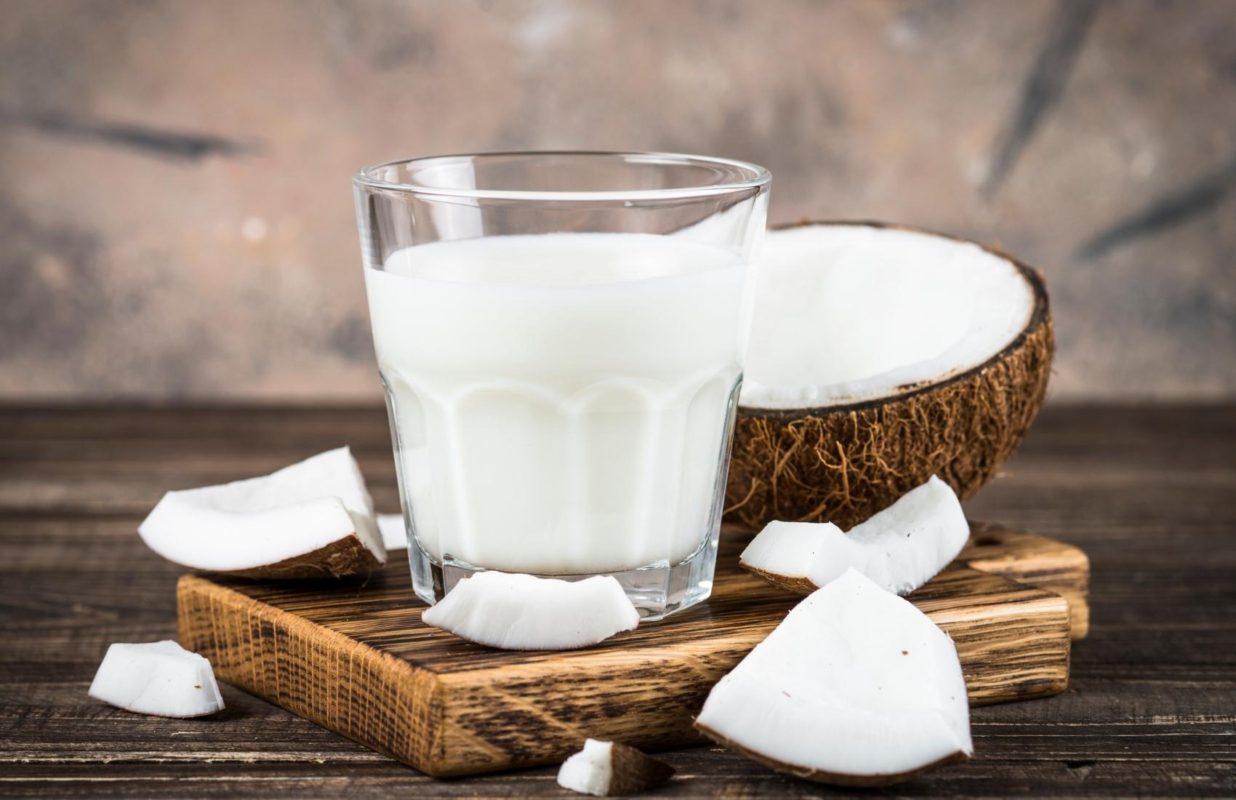
The Best Cows-Milk Alternatives – Cashew Milk
Cashew milk is made by combining cashew nuts or cashew butter with water. It has a sweet and delicate nutty flavour and is thick and creamy.
The nut pulp is filtered out of the milk, as it is with other nut-based milk. The protein, fibre, vitamins, and minerals in the whole cashew are lost in the process.
Cashew milk has a third of the calories, half the fat, and much less protein and carbs than cow’s milk. Cashew milk may not be the ideal choice for persons who acquire higher protein due to its low protein level.
Its low carbohydrate and sugar content makes it a good choice for those who need to keep track of their carb consumption, such as diabetics.
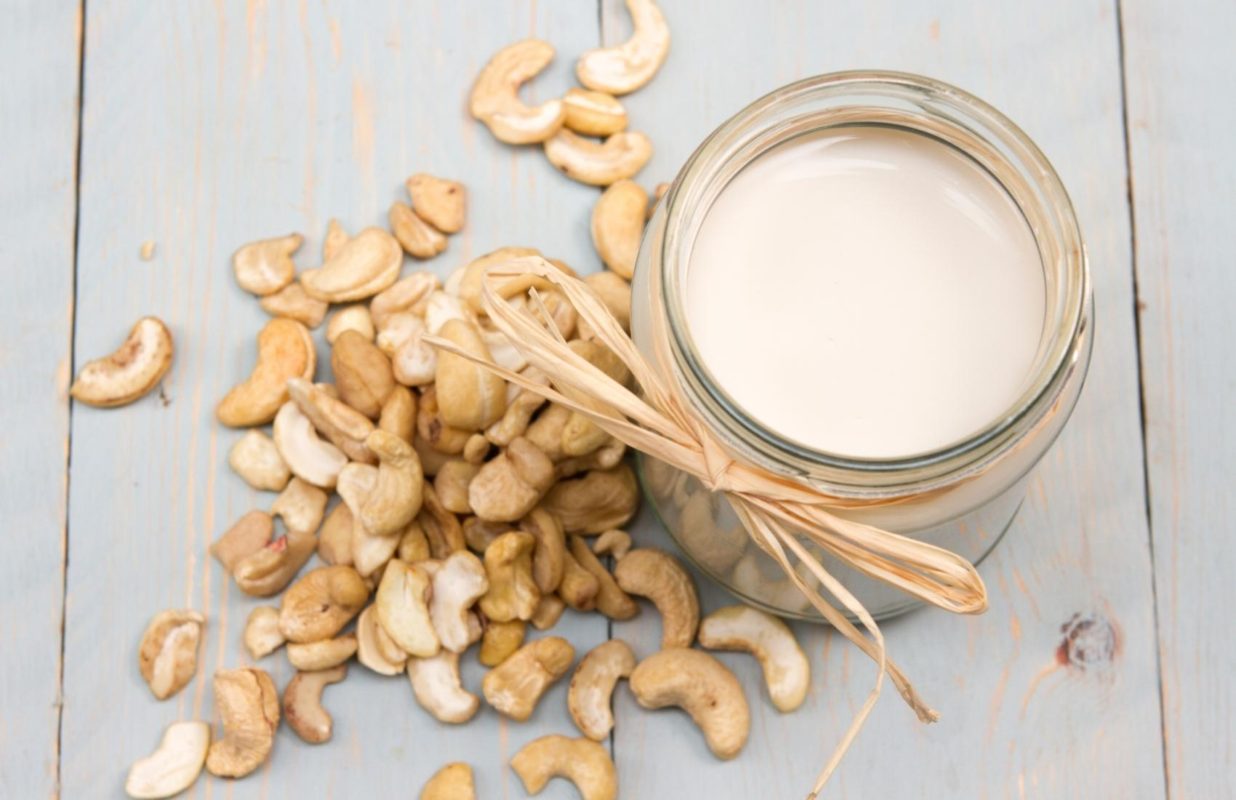
Quinoa Milk
Quinoa milk is created with water and quinoa, a grain-like edible seed. It has a unique quinoa flavour and is quite sweet and nutty.
This non-dairy milk is a highly nutritious grain that is gluten-free and packed with high-quality protein. Compared to other non-dairy milk, it offers a well-balanced nutritional profile with low-fat content and moderate protein, calorie, and carbohydrate content. For vegetarians and vegans, quinoa milk is an excellent plant-based source of high-quality protein.
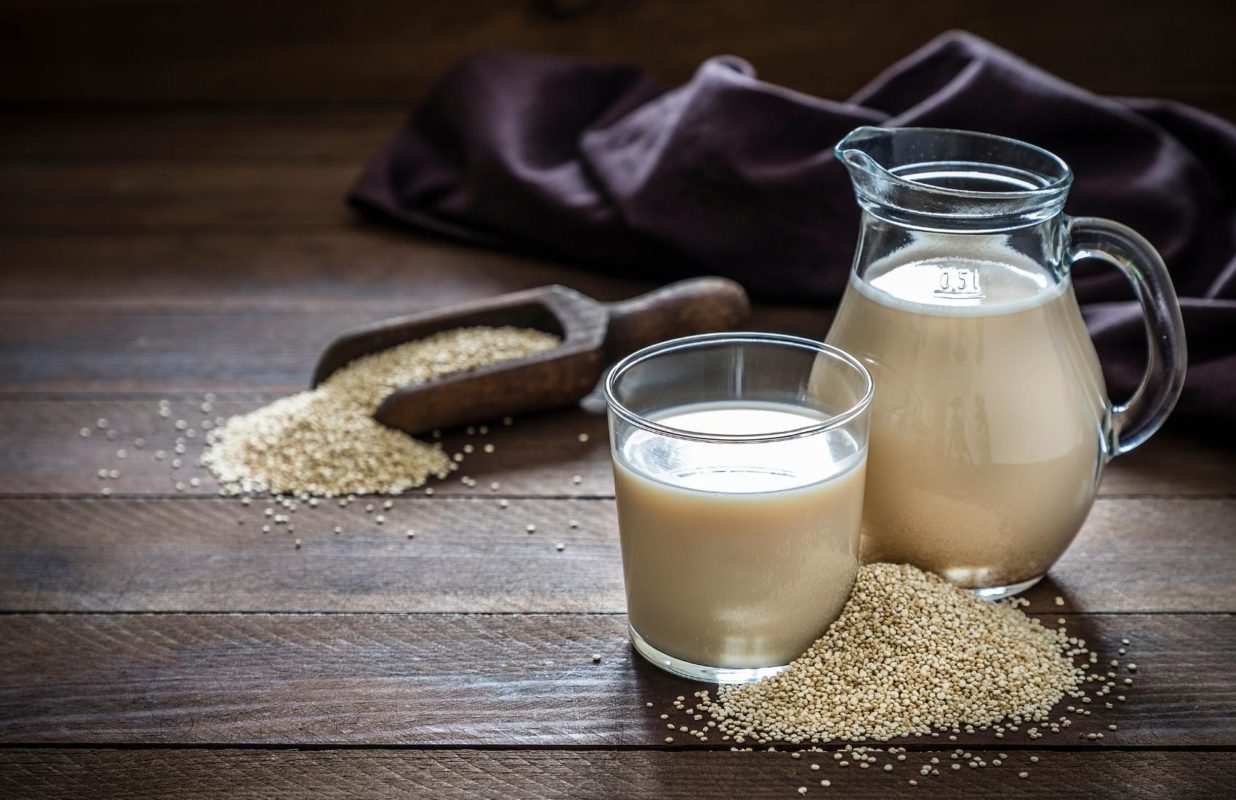
The flavour, nutrition, and cost of these options can all be quite different, so it may take some time to discover the right one for you. There isn’t a single milk that is perfect for everyone.

